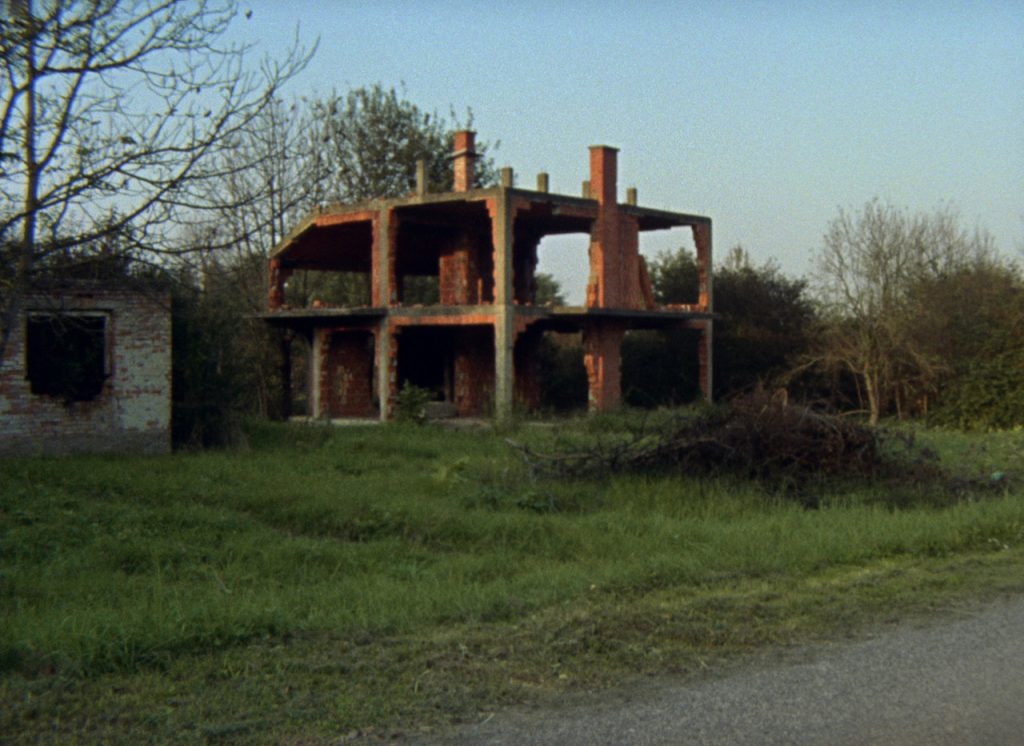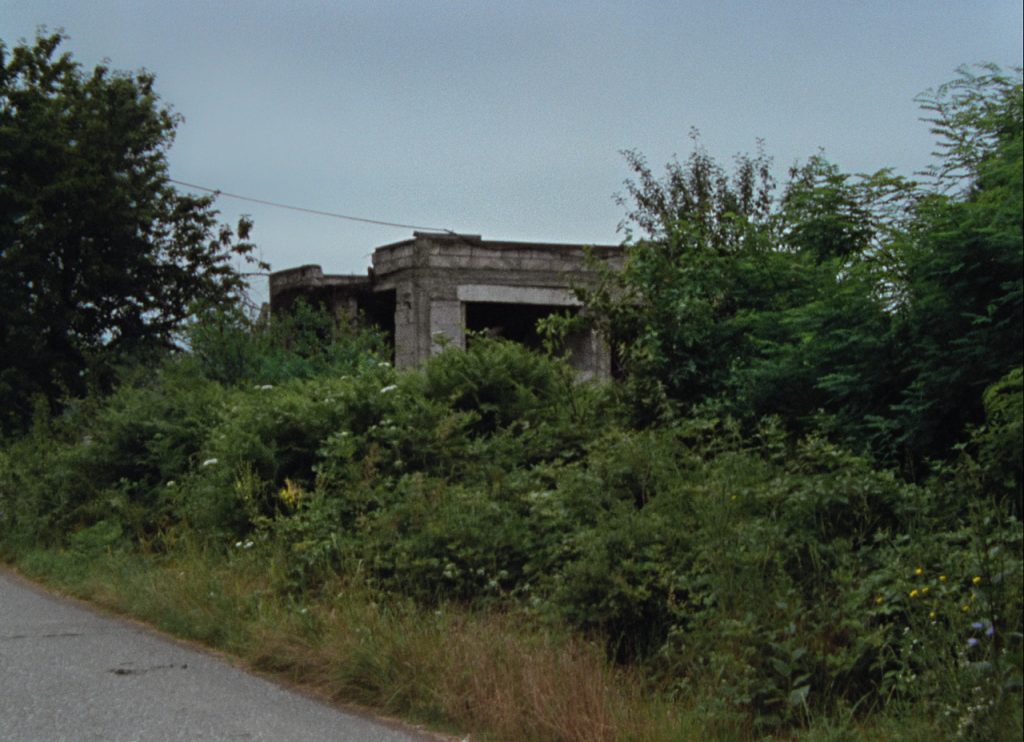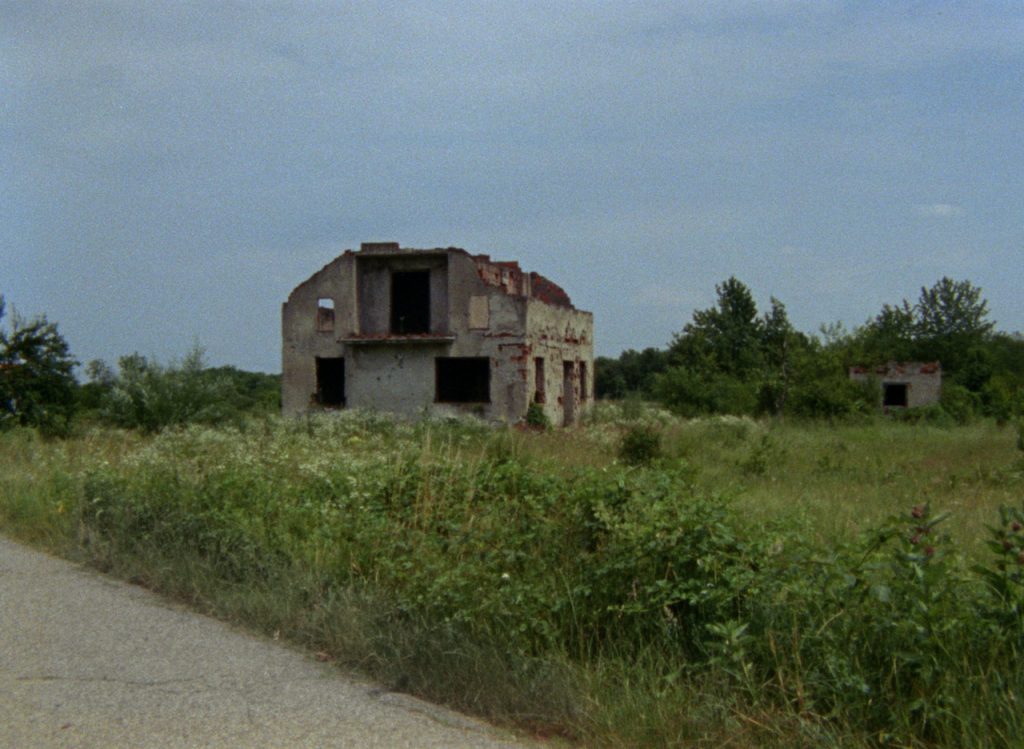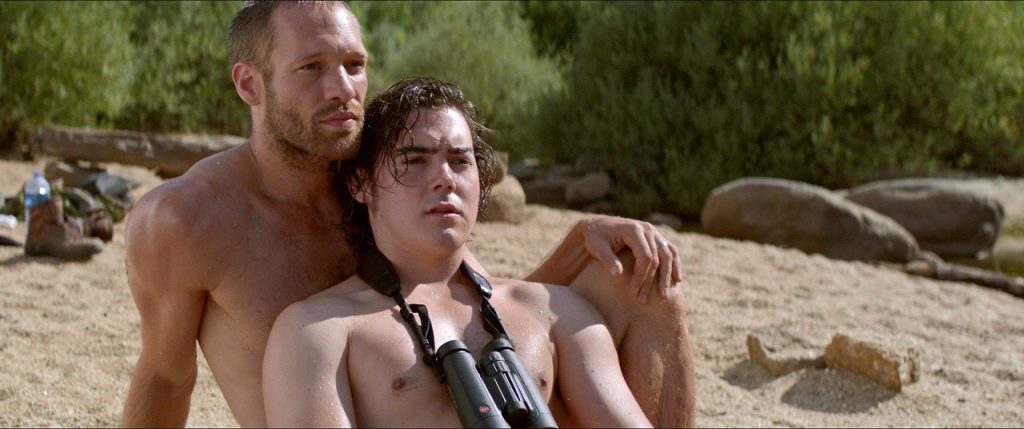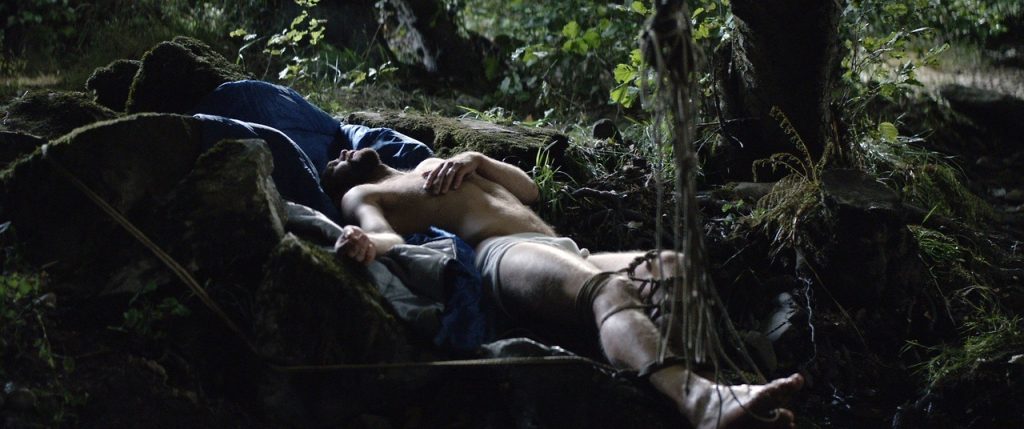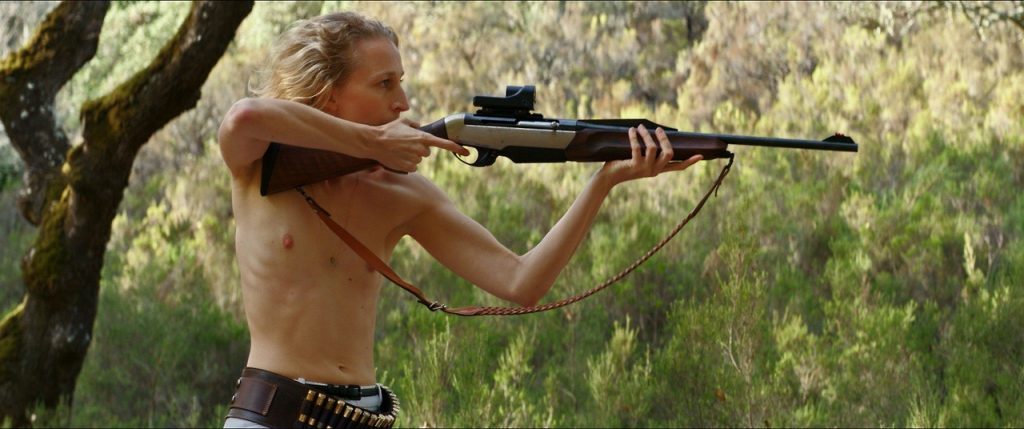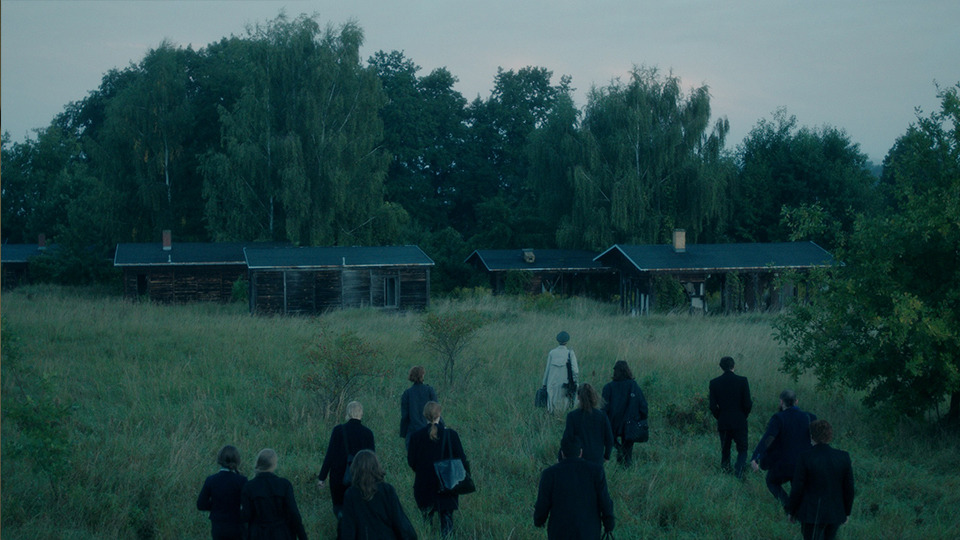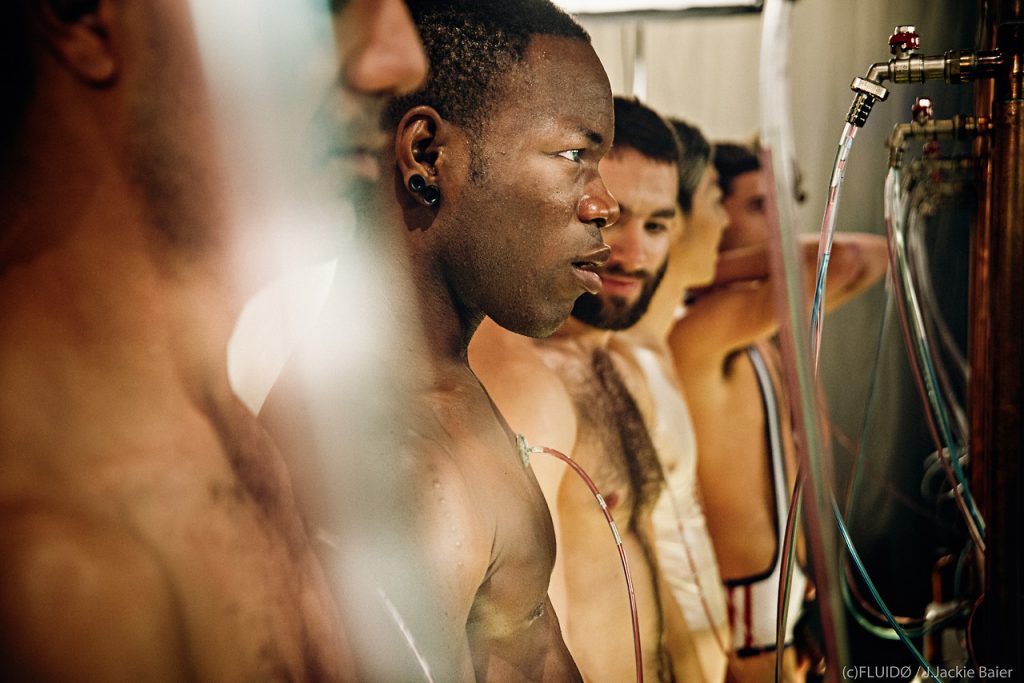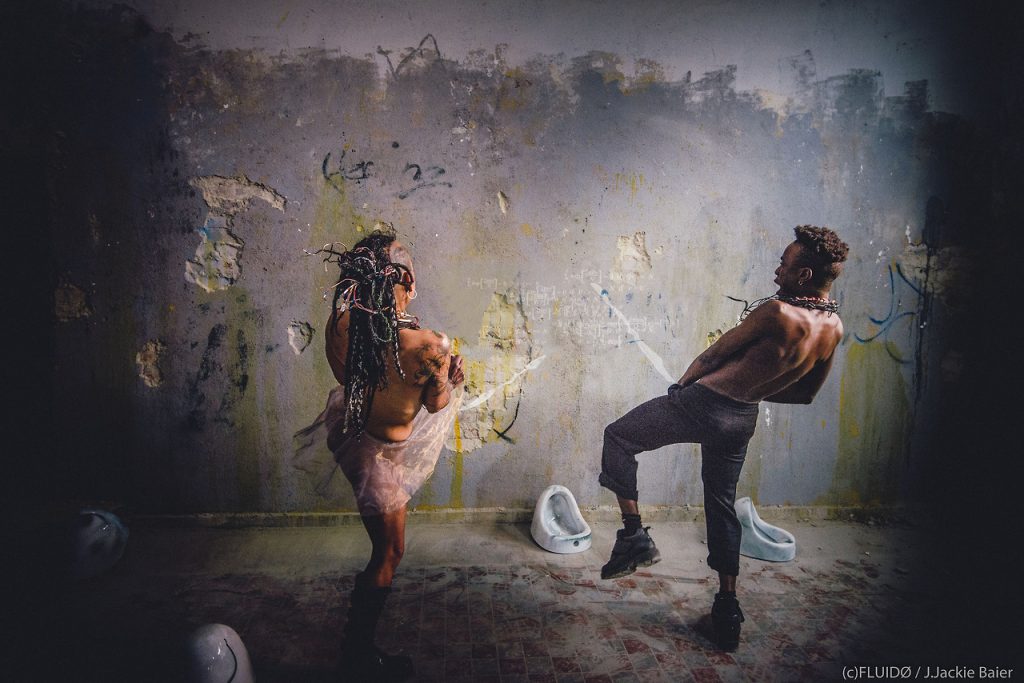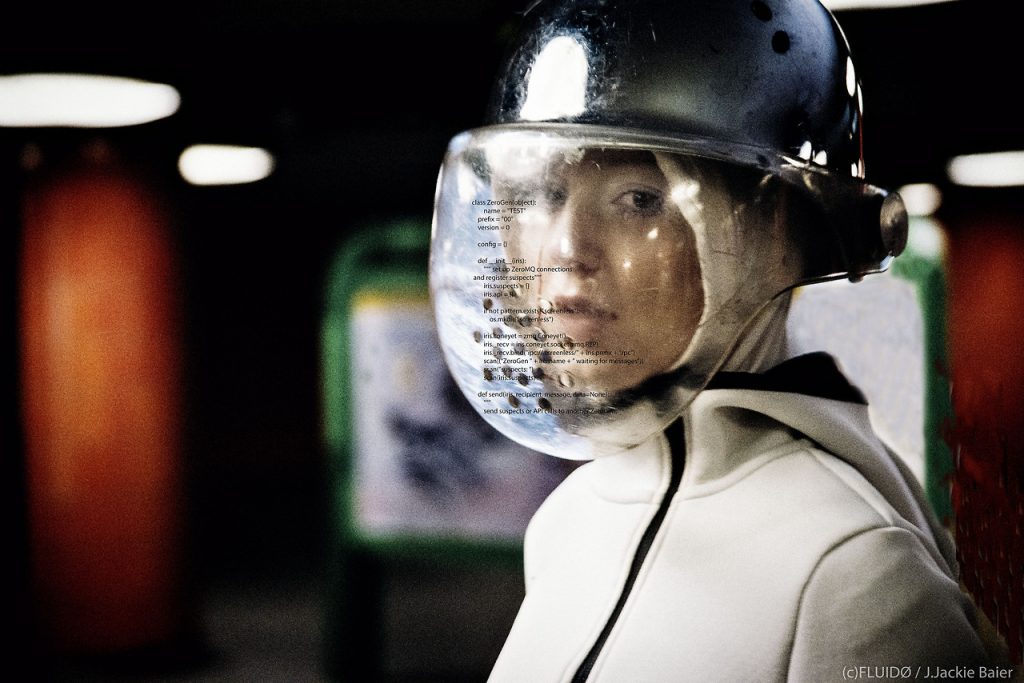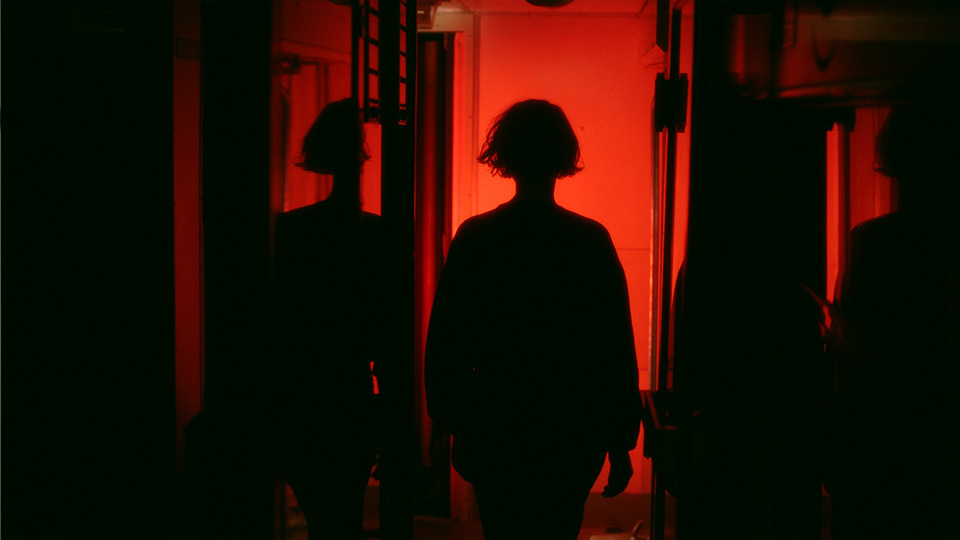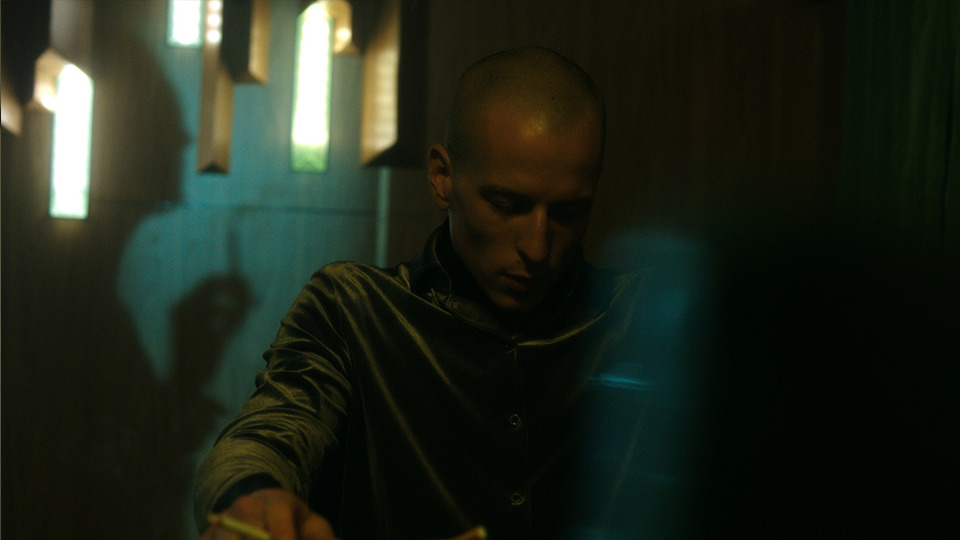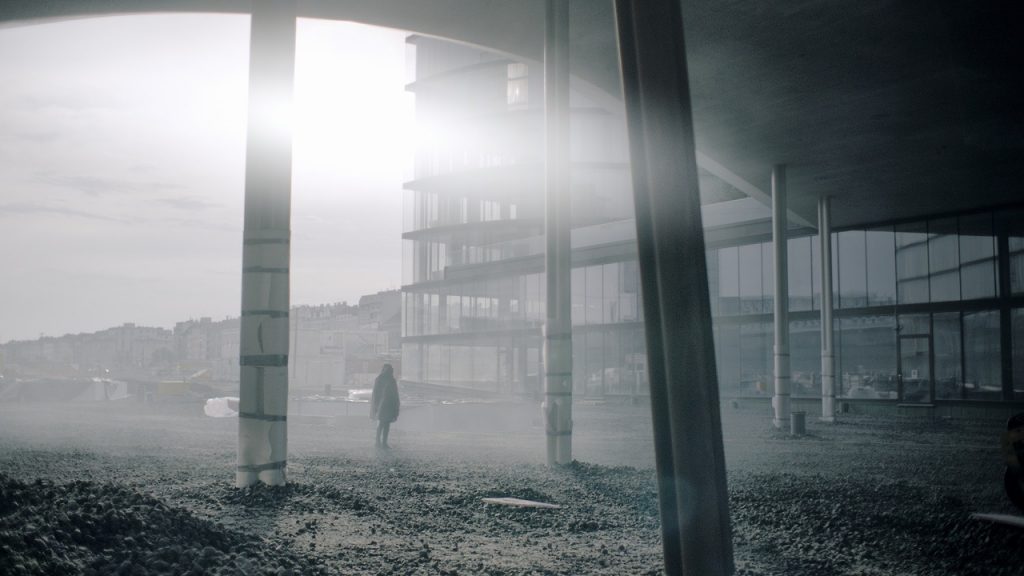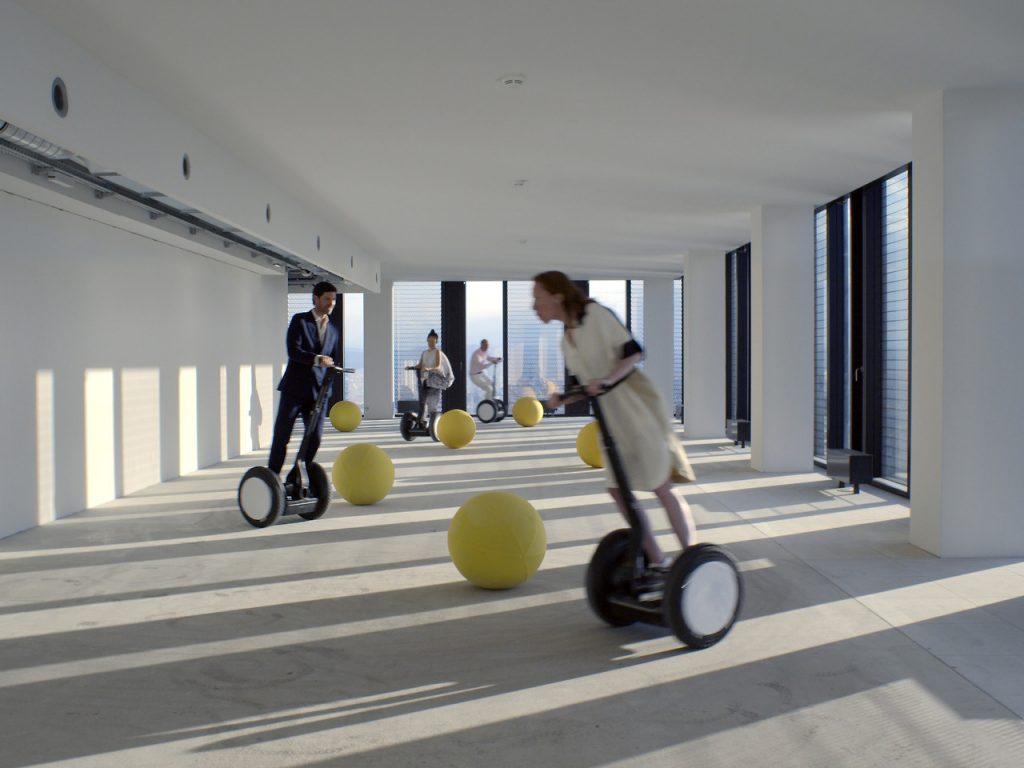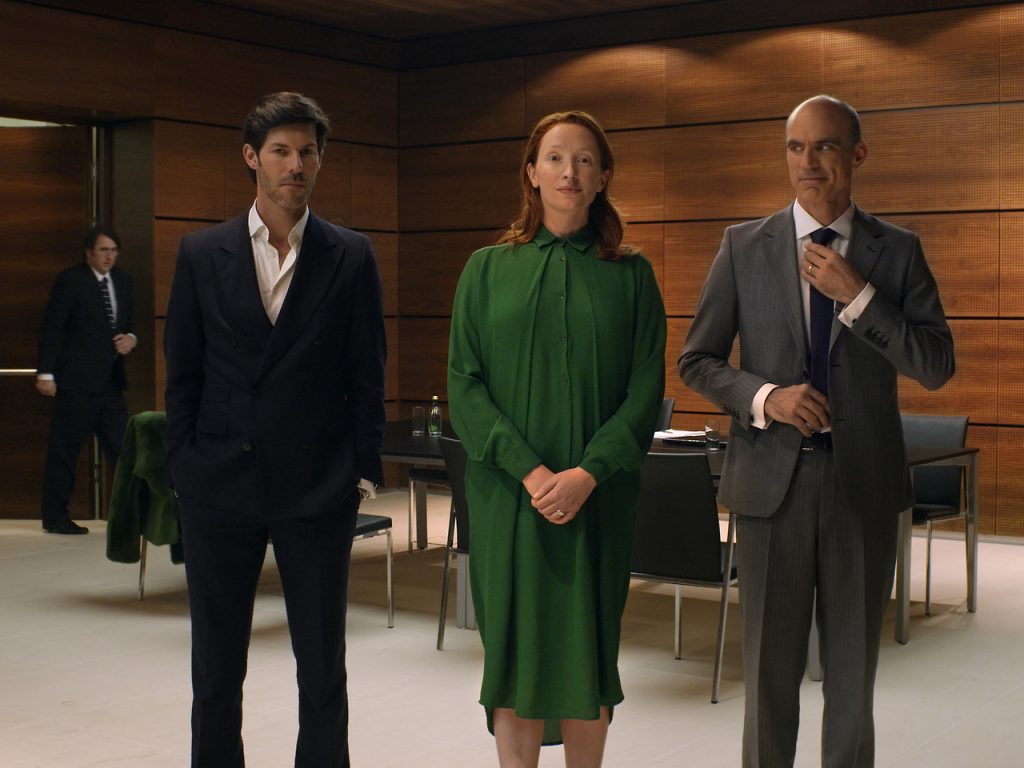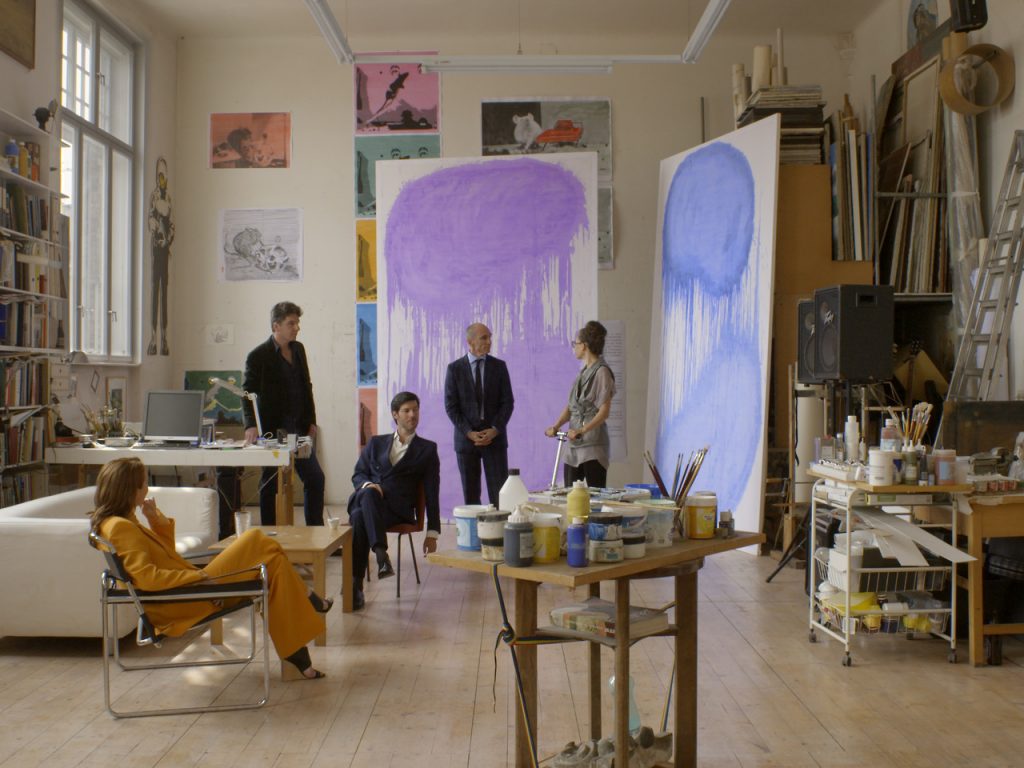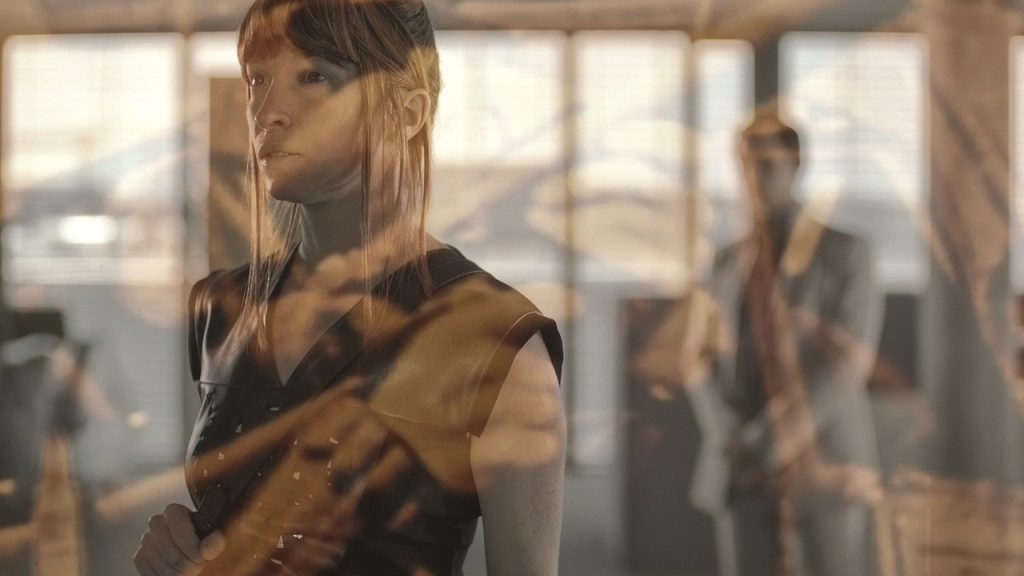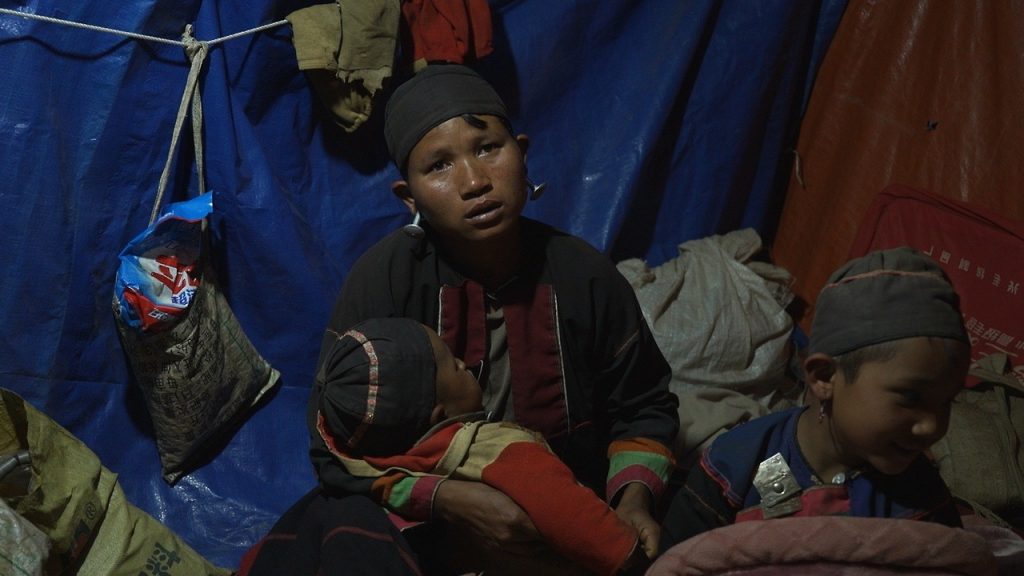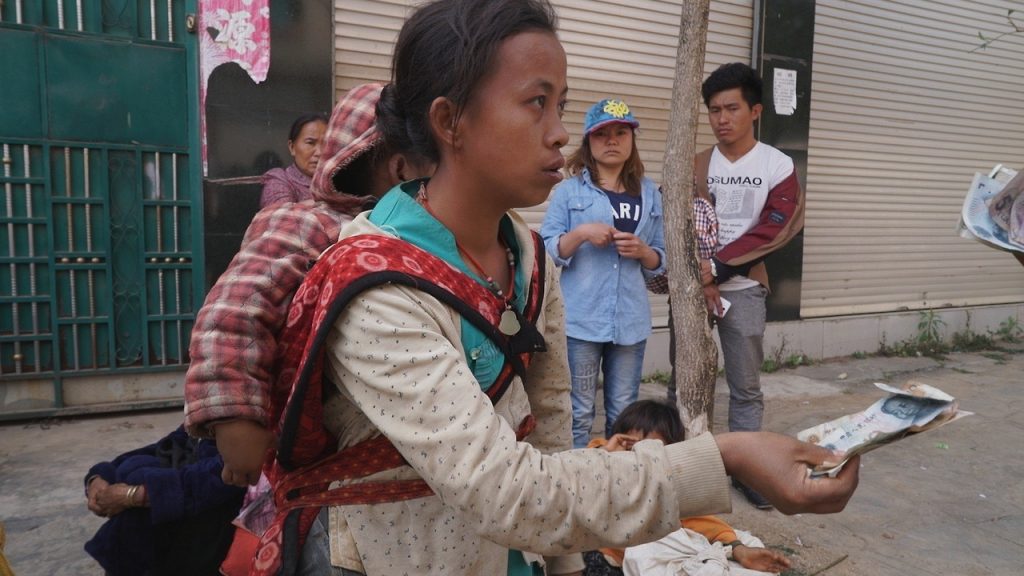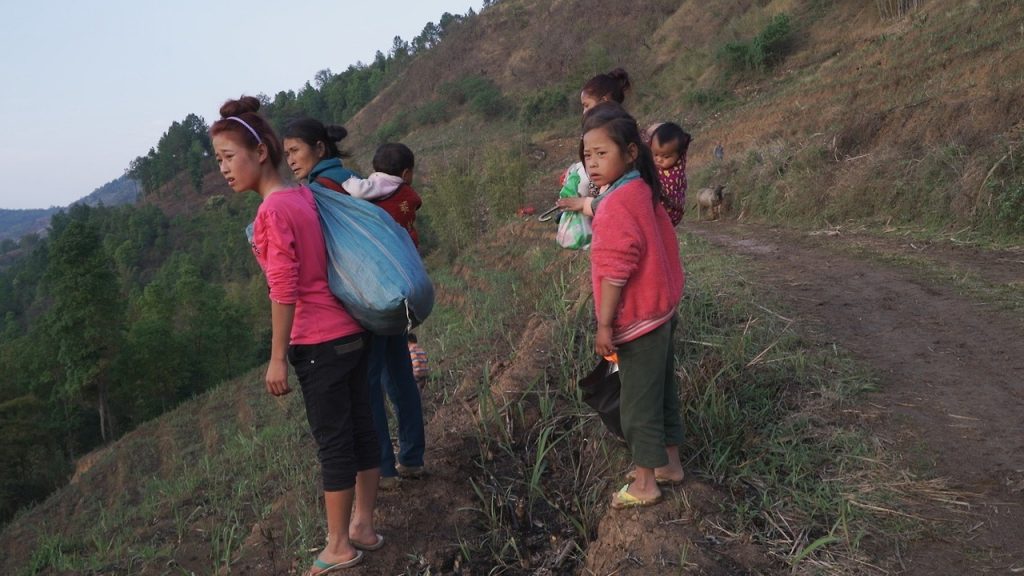This April marks the 15th anniversary of the escalation of the Bosnian War, pictures of which might still roam in some of yours heads. Now, the relation between cinema and war has always been a problematic and critical one and one raising seemingly endless questions. But only rarely were these questions really tackled in and through cinema itself. Austrian filmmaker Selma Doborac does just that in her most recent film THOSE SHOCKING SHAKING DAYS, which takes the Bosnian War as a starting point for her cinematic reflections, resulting in an essayistic film that is certainly not easy to watch and one that invokes to discuss. Therefore, we’re very happy to have the director Selma Doborac coming to the screening on 09 April, 7pm at Schaubühne Lindenfels for a Q&A and for talking with us about her film.
Read more about THOSE SHOCKING SHAKING DAYS below and over at sixpackfilm.com.
Director Selma Doborac will be present.
THOSE SHOCKING SHAKING DAYS
AT/BA 2016, Doc, D: Selma Doborac, German OV, 88’, DCP
Thematized and considered are the act of failing, ineffabilty, also, and not least, the feeling of being overchallenged. As a filmmaker and as an addressed audience. However, Selma Doborac never reconciles herself in her essay film THOSE SHOCKING SHAKING DAYS. Long and static pictures of abandoned houses rest in square format without leaving anything too much at peace here. Language overgrows the picture like branches, bushes and grasses that once inhabited buildings. Textual inserts fray out, undermine the visual information presented and encode themselves into their structure like the plants into the houses’ facades. In doing so, however, these sprawling sentential formal landscapes of challenging questions do not overlay but lay open: a method, a complexity, a discomfort, a necessity. This cinematic approach to the Bosnian war and to war in general is among other things about “trying to sing the praise of a mutilated world”, like Doborac describes it once referring to a poem of Adam Zagajewski. It is an approach conscious of the confines of both visualization and verbalization, that still does not beat about the bush, being weary of merely stating things, of pure observer status, and which instead brings up many painful topics. A self-reflexive, sharp-witted philosophizing, “a film with bruises” (Jean-Pierre Rehm). Committed to individual fate. Dedicated to the universal.
09 April, 7pm – Schaubühne Lindenfels
€ 6,5 (5,5 red.) / € 9 (8 red.) for a double ticket
incl. the Ursula Biemann “Border activities” programme
Maybe you’ve seen some films by the likes of Pedro Costa or Miguel Gomes already, then it should be no big news for you anymore that contemporary Portuguese cinema is definitely something to keep on radar. Not unlike those two directors, João Pedro Rodrigues’ cinematic language is also quite unique and inventive and his way of storytelling beautifully weird. Reason enough for us to include his most recent work O ORNITÓLOGO (THE ORNITHOLOGIST) in our programme. You can already see the trailer below. The whole film will be screened on 11 April, 8pm at Luru Kino, including important travel safety tipps for your next birdwatching tour through the Portuguese countryside.
O ORNITÓLOGO / THE ORNITHOLOGIST
PT/F/BRA 2016, D: João Pedro Rodrigues, A: Paul Hamy, Xelo Cagiao, Han Wen, Chan Suan, OV/English subtitles, 118’, DCP
Fernando is a solitary ornithologist looking for rare black storks on a remote river in the north of Portugal, until his canoe is swept away by the
current and capsizes. Regaining conscious again, he is located in a forest, having been rescued by two Chinese pilgrims on their way to Santiago de Compostela. Fernando’s way back into his life turns into a surreal inward journey, in which the narrative increasingly dissolves, gets rid of time and space barriers and establishes a sexual myth. At it, nobody needs to know that THE ORNITHOLOGIST is Rodrigues’ autobiographical fragmentation and recklessly free modernisation of the clerical story of Anthony of Padua in order to like this film. Au contraire: the erratic, marvellously eccentric episodes, the mysterious density and ambiguous sensuality of the pictures attract from the very start. THE ORNITHOLOGIST is detached cinema, which is in constant transformation together with its figures, subject only to itself—a kind of cinema leaving behind earthly gravity as the birds do. Such a pleasure in associative fabulation would cause films to fall apart in the hands of most other directors. Rodrigues, however, with impressive control, mingles motives that seemingly do not match. He confers the episodes with a self-willed coherence that keeps one in line—and also casually holds the gaze of the film’s birds, which take a look back at Fernando from above from time to time.
11 April, 8pm – Luru Kino at the Spinnerei – € 6,5 (5,5 red.)
Now, for some more “science” fiction: On April 12 at Luru Kino we’ll have a gamy double screening featuring TARA, the new short film by young filmmaker Felicitas Sonvilla off of MOTEL director’s collective and the most recent work by Taiwanese new media artist Shu Lea Cheng: FLUIDØ—both of which you might’ve see at this year’s Berlinale… or might have not, and so here’s another opportunity. Check the trailers below (they’re worth it)!
TARA
GER 2016, D: Felicitas Sonvilla, A: Sasha Davydova, Leo van Kann,
Lena Lauzemis, Russian OV/German subtitles, 30’, DCP
Memory and the trial of overcoming the present are among the guiding themes of TARA. The short film’s construction of the present is Characterized by darkness and coldness. Protagonist Mira finds pictures of a better life only in fragments of memory—until she hears about the promises of a place called “Tara”. Located far east, this region augurs a life free from the central region’s constraints, breaking with the alienating circumstances that make existence a silent ordeal. TARA is the most recent work of the young Munich directors’ collective MOTEL, which, with only minimal narrative and pictorial devices, manages to create a scenario captivatingly reminding one of the great sci-fi film inspirators P. K. Dick, Stanislaw Lem or the Strugatzki brothers.
12 April, 10pm – Luru Kino – € 8 (6 red.) for a double ticket incl. FLUIDØ
FLUIDØ
GER 2017, D: Shu Lea Cheang, A: Candy Flip, Bishop Black, Kristina
Marlen, William Morris, OV/ English subtitles, 80’, DCP
2060. We are situated in a future without AIDS, in which a novel intoxicant is spreading. The drug is made by sporadically occuring HI virus mutations, is transferable by skin contact and has a maximum dependence potential. In this future also, drugs are illegal, persecution by the secret police being the consequence. At the same time, at another place, an unusual scenario: men in jockstraps are strung together, all wired up, committed to continuously produce sperm that is required for the production of medication for the pharmaceutical industry. Prolonged shots alternate with densely clocked images increasing into temporary strobe light effects, thus highlighting bodies, their secretions and potential efficacy. Before FLUIDØ made its way onto the screen, the zero gene made a name for itself in performances, installations and photo exhibitions. A dystopian science fiction porn, in which the boundaries between genders as well as between homo-, hetero-, bi-, trans- or intersexual continuously blur. “Fluidø is virus, sex, hack, drug & conspiracy.” (Shu Lea Cheang)
12 April, 10pm – Luru Kino – € 8 (6 red.) for a double ticket incl. TARA
…BUT!—let’s not forget about the endless possibilities of FICTION! On April 07 at Schaubühne Lindenfels we will see two contemporary cinematic statements showing how the fiction film can be a vehicle for revealing
political and economic relations and structures of society. The works shown are Clemens von Wedemeyer’s recent sci-fi parable ESIOD 2015 and Daniel Hoesl’s capitalist play WINWIN. We are more than happy to have director Daniel Hoesl as well as Stephanie Cumming, who’s starring in both of the films coming to the screening for a Q&A. April 07 also marks the day of the opening of our TRUE POLITICS exhibition at Schaubühne Lindenfels’ ballroom. More infos on that will soon follow.
07 April, 9pm – Schaubühne Lindenfels
€ 8 (6 red.) for a double ticket incl. WinWin
Actress Stephanie Cumming will be present.
ESIOD 2015
AT/GER 2016, D: Clemens von Wedemeyer, A: Stephanie Cumming, Sven Dolinski, English OV, 39’ DCP
Vienna 2051. After years, Esiod returns to the city to terminate her bank
account. Not only is there financial data on that account, but also memories and personal information are digitally stored in it. Esiod is not recognised by the computer system. She has to undergo a memory check, whereby her reactions to the account’s data, videos and pictures are observed. Identity verification is strict and contains, among other things, a record of movements, in which the motoric patterns of a human being are, in every detail, recorded in the register. Shooting location of ESIOD 2015 is the half-finished „Erste Campus“ of the Austrian savings bank in Vienna, a construction project whose parts of the building seem like leftovers of a post-apocalyptic, deserted area. Director Clemens von Wedemeyer creates layers of dystopian science fiction and projects the current financial crisis and the virtualization of work, life and capital onto the architecture temporaily set in a not all too distant future. His protagonist increasingly gets lost in the boundaries between real and virtual space, and likewise the film itself disintegrates more and more into transparency, turning into a pixel cloud.
Director Daniel Hoesl and actress Stephanie Cumming will be present.
WINWIN
AT 2016, D: Daniel Hoesl, A: Christoph Dostal, Stephanie Cumming, Jeff
Ricketts, Nahoko Fort-Nishigami, OV/English subtitles, 84’, DCP
WINWIN, these are four smart investors, a group of cosmopolitan itinerant
preachers jetting around inside a world beyond risk. Every time they are on firm ground again, they lead companies to a still even better future. They are networking, challenging, eating, stretching, expanding, downsizing. Their clothes fit perfectly, everything they say is intonated pleasantly. They talk to us directly from the screen, their words are diconnected, floating in the room, are not directed at any reality and still affect us all. However, the film’s dialogues are based on facts, taken from personal meetings with investors, executives and other members of the superrich. WINWIN is an aesthetically consistent, ambiguous reflection on mechanisms of the postmodern, global financial capitalism—the caustic humor of the film begins where fun has come to an end. Straight from the parallel universe of power, the pictures appear like an absurd dream, a jazzy roundelay of pictures from a mostly low-noise, superficial world. Director Daniel Hoesl, the “Bertolt Brecht of the techno generation” (Wroclaw International Film Festival) and his production collective European Film Conspiracy frame a severe comment on a world by using this world’s own weapons to level them at it. Everything is elaborately choreographed, digital and vigorously thought-out, everything is clean, polite and, all the same, somehow repulsive. It is a world where everyone is preaching love and is earning gold.
As you might have figured already, we have a strong focus on the documentary format and its cinematic potentials at this year’s GEGENkino. Hence, on April 10 at UT Connewitz we take the opportunity to show the film “Ta’ang”—a new documentary by the often-heard-of, but probably only seldomly received Chinese director Wang Bing. With “only” 2 hours and 20 minutes this film is one of the shorter works by Wang Bing—a filmmaker famous for films like like the documentary “Crude Oil”, clocking in at 14 hours of length. “Ta’ang” is a very engaged study of one specific ethnic minority—the Ta’ang—and of displacement and existential migration in general—a topic which we’re dealing with in several section of our 2017 programme.
TA’ANG
HK/F 2016, Doc, D: Wang Bing, OV/English subtitles, 142’, DCP
Whether as a nine hour long-term study about the impoverishment of hundreds of thousands of workers and the politically intended decay of complete industrial regions or the portrait of three sisters now on their own, having been left behind by their parents because of financial constraints – the films of Wang Bing show disintegrating environments aloof from a rampant economic growth. The new work of the Chinese documentary filmmaker is familiarly radical in the reduced use of its means. At it, the film develops a strong aesthetic and emotional pull that exceeds an impersonal representational function. With TA’ANG, Wang faces the ethnic minority of Myanmar with the same name (also known as Paluang), having been victims of Burmese civil war for decades. In 2015, violence flared up once again and caused an exodus of the Ta’ang to China. Today, up to 100,000 refugees, chiefly women, old poeple and children, are living quasi-nomadically in unsteady camps in the province of Yunnuan, hoping to return soon. The film opens up as seemingly aimless, looking for orientation in unknown surroundings, but develops a precise sequence of movements, ranging from the microscopic view on afflicted people – searching for a resting place, making a fire and cooking, having conversations, estimating the distance to war by the volume of the explosions – right up to humanitarian contexts of war.
10 April, 8pm – UT Connewitz – € 6,5 (5,5 red.)

